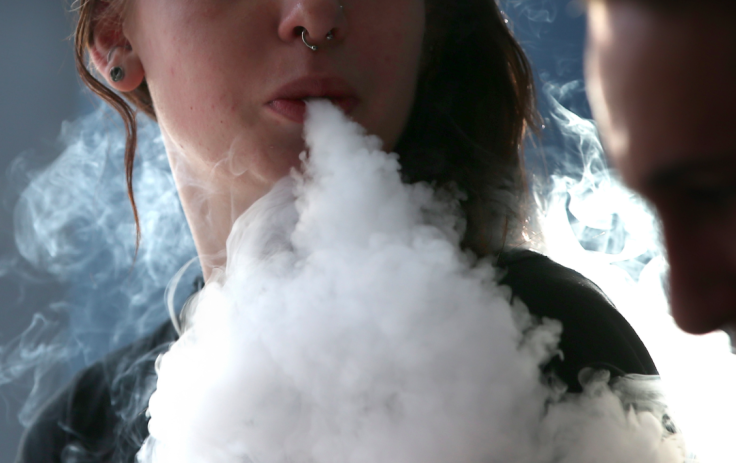Michigan First State To Ban Flavored E-Cigarettes; Whitmer Says Acting To Protect Kids

Gov. Gretchen Whitmer made Michigan the first state to ban flavored nicotine vaping products Wednesday to keep “our kids safe” from the harmful effects.
Whitmer signed two bills in June that make it illegal to sell e-cigarettes and other non-traditional nicotine products to minors but criticized the measures as not going far enough.
On Wednesday she ordered the state Department of Health and Human Services to issue emergency rules to ban the sale of flavored nicotine vaping products by retail stores and online, and barred misleading marketing of vaping products, including terms like clean, safe and healthy, that make the products seem harmless. She also ordered the Department of Transportation to enforce an existing statute that prohibits billboards promoting vaping products.
“As governor, I’m going to do it unilaterally until I can get the legislature to adopt a statute and write it into law,” Whitmer said in an interview with MSNBC. “This is too important.”
“As governor, my number one priority is keeping our kids safe,” she said. “And right now, companies selling vaping products are using candy flavors to hook children on nicotine and misleading claims to promote the belief that these products are safe. That ends today. Our kids deserve leaders who are going to fight to protect them. These bold steps will finally put an end to these irresponsible and deceptive practices and protect Michiganders’ public health.”
The move came after Michigan Chief Medical Executive Dr. Joneigh Khaldum found youth vaping constitutes a public health emergency.
“In the past few years, we’ve seen an explosive increase in the number of Michigan kids exposed to vaping products,” Khaldun said. “This is a public health crisis. These products can contain harmful chemicals that put our kids’ health at risk.”
The rule actually has yet to be filed but will take effect immediately once it is in the next few weeks, a spokesperson for Whitmer told the Detroit Free Press. It will then be in effect for six months to give the legislature time to act. Businesses will have 30 days to comply.
Doctors and hospitals have reported at least 193 cases of respiratory illnesses in 22 states linked to vaping, 22 of the cases in Illinois alone, with one of those cases fatal. Oregon also is investigating a severe respiratory death as possibly related to e-cigarettes.
Many of the illnesses have involved vaping tetrahydrocannabinol (THC), the active ingredient in marijuana. It’s unclear, however, exactly what led to the illnesses.
While Michigan is the first state government to ban these products, cities like San Francisco and Boulder, Colorado, also have taken action.
The American Heart Association praised Whitmer's move, saying it will help protect Michigan from the unknown health risks of vaping. But the American Vaping Association warned the action could lead to thousands of individuals returning to traditional cigarettes. Market leader Juul said it would support a ban of “kid-specific” flavors that emulate candy, food and drinks. It already has pulled such flavors as crème, cucumber, fruit and mango from stores, and now only sells them on an age-gated website.
Use of vaping products by minors has skyrocketed. E-cigarette use spiked 78% among high school students and 48% among middle school students from 2017 to 2018, with more than 3.6 million kids (20 percent in high school and 5 percent in middle school) describing themselves as regular users in 2018. The rates are reported still growing with flavors like apple juice, bubble gum and Nerds available.
© Copyright IBTimes 2025. All rights reserved.





















